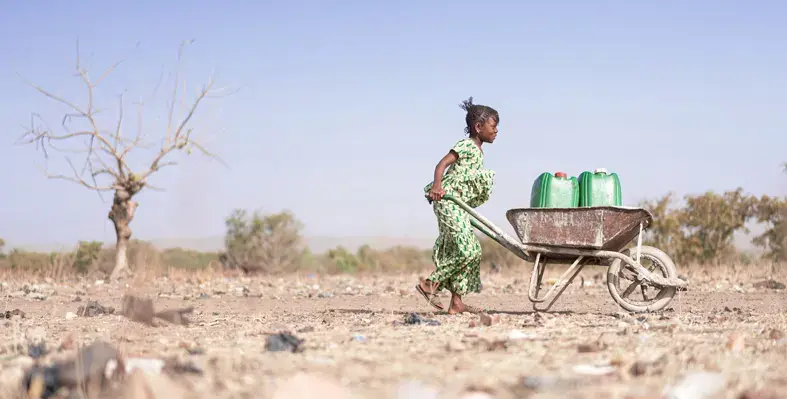Rwanda being greatly susceptible to impacts of climate change through its high dependence on rain-fed agriculture has fallen prey to seasonal droughts that are expected to become more prolonged, causing additional challenges, especially in the east and southeast of Rwanda in Bugesera, Mayaga, and Umutara
Current seasonal forecasts for agricultural season A in Rwanda, which runs from mid-September to early-December, indicate an increased probability of below-average rainfall, which may cause dry spells in some parts of the country, especially in the eastern province and Amayaga region. As a result, some farmers in the east have not yet planted, while others’ crops have not germinated well. Both this forecast and the increased cost of agricultural inputs such as seeds and tools are likely to reduce crop yields for the upcoming harvest, which is expected to occur from December 2022 to January 2023. Adding to the climate-related difficulties facing rural households, food prices in Rwanda have been exceptionally high. This is of particular concern as households in Rwanda are heavily market-dependent.
Thanks to the Government of Belgium’s contribution of US$500,000, through the SFERA – Anticipatory Action window, the Food and Agriculture Organisation of the United Nations (FAO) is acting fast. The project will support the resilience capacity of smallholder farmers to help them cope with the predicted impacts of drought, protect their assets and maintain their food security. This in turn will promote the adoption of climate-smart agriculture for better production, nutrition, environment, and quality of life for all.
The project will contribute to improving food security for households expected to face the impacts of the combined shocks – drought plus high food and input prices. This is particularly important to mitigate the impacts of the predicted below-average rains from October to December 2022. The Government of Rwanda is already providing seeds and fertilisers to farmers. This project will be complementary to their actions, particularly in the areas of irrigation and water availability for production.





